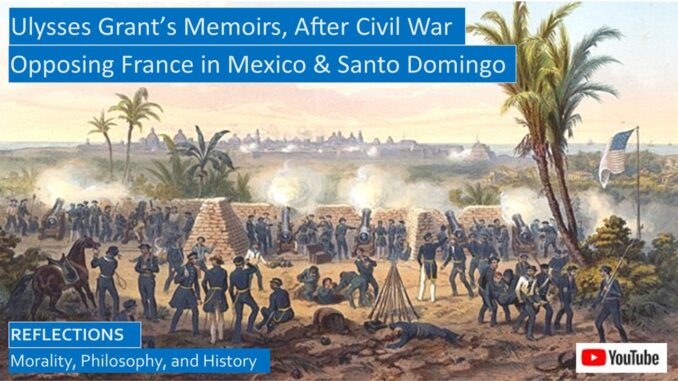
In his Memoirs, Ulysses S Grant answers the question: What was the primary cause of the Civil War?
Grant assures us: “The cause of the Great War of the Rebellion against the United States will have to be attributed to slavery. For some years before the war began, it was a trite saying among some politicians,” including Lincoln in his House Divided Speech, “that a state half slave and half free cannot exist. All must become slave or all free, or the state will go down.” “Slavery was an institution that required unusual guarantees for its security wherever it existed.” Grant then criticizes the Fugitive Slave Law, in force before the Civil War, that compelled Northerners to help apprehend and return runaway slaves.
Why did Grant call this landmark phrase in Lincoln’s landmark speech a “trite saying?” Perhaps we should read too much into this, as Grant was furiously writing his Memoirs so his widow would not live her remaining years in poverty, and was near death when he finished his Memoirs in 1885. Reconstruction had ended some years before, was Grant seeking not to antagonize his Southern readers?
The Civil War was fought over slavery, as the public declarations of the Southern state secession conventions of the Southern states confirmed, as did the pre-war Cornerstone Speech of the future Confederate Vice President Alexander Stephens.
We Fought the Civil War to Preserve Slavery, Confederate Leaders Proclaimed
https://seekingvirtueandwisdom.com/we-fought-the-civil-war-to-preserve-slavery-confederate-leaders-proclaimed/
https://youtu.be/vBt81M6EWk0
Grant also points out that “in the early days of the country, before we had railroads, telegraphs and steamboats,” “the States were each almost a separate nationality.” But by the time of the Civil War, the country was too interconnected, and the disputes concerning slavery in the territories too bitter to long maintain peace.
Grant commented that “it is probably well that we had the war when we did.” The monarchies of Europe were warily watching our Republican experiment, and Grant appears to argue that the technological and social effects of the war would strengthen the country. We do know that after the war, without the Agrarian South blocking progress, the United States embarked on industrial expansion and settlement of the Western territories with the passage of the Homestead Act. [1]
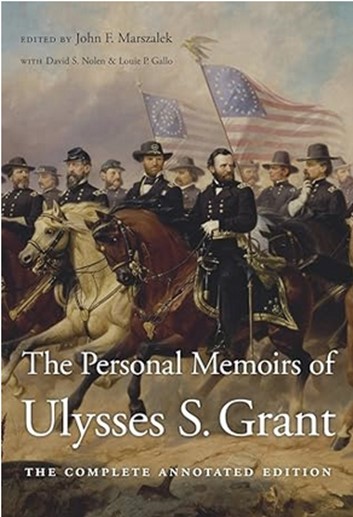
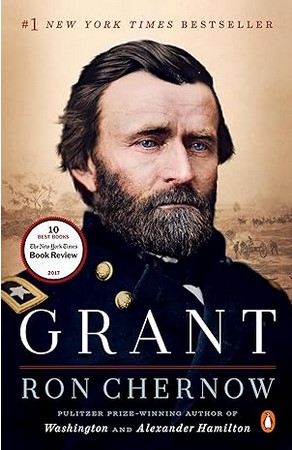
Did Grant view the Civil War as inevitable? Many northerners thought that so, though they hoped it would never ignite. When Professor Gary Gallagher of the Great Courses Plus was featured in an online discussion, knowing he had read many of the newspaper accounts of the day, I asked him whether northerners feared that if the Confederacy were permitted its independence, there would be inevitable armed conflict over whether future western states would join the Union or the Confederacy. He confirmed this was true.
But I have never seen this stated as a reason for the inevitability of the Civil War. So, if there are any graduate students out listening, this would be a great question to research.
Why Were Union Soldiers in the Civil War Willing to Fight to Preserve the Union?
https://seekingvirtueandwisdom.com/why-were-union-soldiers-in-the-civil-war-willing-to-fight-to-preserve-the-union/
https://youtu.be/0aak9Mtt0eI
Many northerners believed deeply in preserving the Union, and in the beginning of the war most were not keen on fighting for emancipating black slaves. To understand why northerners felt so deeply about preserving their Union that they were willing to sacrifice their blood to preserve it, we need to go back several decades to the rousing speeches of Daniel Webster, and the Secession Crisis of 1832 when South Carolina first threatened to secede, with President Andrew Jackson threatening military action to prevent secession.
How Did the Speeches of Daniel Webster Inspire the North to Fight To Preserve the Union?
https://wp.me/pachSU-18T
https://seekingvirtueandwisdom.com/how-did-the-speeches-of-daniel-webster-inspire-the-north-to-fight-to-preserve-the-union/
https://youtu.be/etLbkY_zgY0
GRANT’S OPINION OF GENERAL MEADE
Grant included complimentary short profiles of the Union generals in the war, the most interesting is his evaluation of General Meade’s abilities. Although General Grant was winning victories in the Western Theater of war, in the Eastern Theater, mostly fought in and near Virgina, the Confederate General Robert E Lee had impressive victories. Abraham Lincoln eagerly accepted General Hook’s resignation three days before the Battle of Gettysburg, ordering General Meade to take charge since Lee’s armies were already in Pennsylvania.
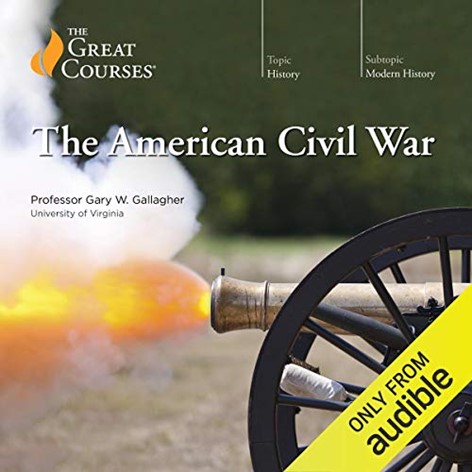
Since Meade was a competent general, with a good feel for the terrain, he put up a competent defense against Robert E Lee, although the Union victory was also due to luck and great effort by some key Union forces, as is often the case in war. Abraham Lincoln, however, was livid that Meade did not aggressively pursue Lee’s army and destroy it, permitting it to escape back into Virginia, a complaint he expressed often against General McClellan early in the war. But Meade’s army had eaten little in the three days of fighting, they needed to recover.
Six months after Gettysburg, Lincoln placed General Grant in charge of all Union armies. Grant did not demote Meade, but merely attached himself to his armies, making Meade effectively second in command.[2]
We can deduce Grant’s reasons for keeping Meade at his current rank from his Memoirs: “General Meade was an officer of great merit, with drawbacks to his usefulness that were beyond his control. He had been an officer of the engineer corps before the war, and consequently had never served with troops until he was over forty-six years of age. He never had, I believe, a command of less than a brigade. He saw clearly the position of the enemy, and the topography” “in front of his position.” “He was subordinate to his superiors.” “He was brave and conscientious, and commanded the respect of all who knew him.” But he did have a temper.[3]
Another question raised by historians is why General Meade did not attend the surrender ceremony at Appomattox, some say it was a slight by Grant. I am not a Civil War specialist, but I can find no definitive account confirming this slight, it appears that General Meade was simply too far away to make the meeting. Surrender could not be delayed to be courteous to Meade.
UNION AND CONFEDERATE CIVIL WAR DIPLOMACY
Throughout history, civil wars and armed conflicts are often influenced by outside intervention. For example, France helped win the American Revolution a century before. Persian funding helped Sparta win the Peloponnesian Wars. The superpowers influenced the course of the Korean and Vietnam Wars.
Why did the European powers refrain from intervening in the American Civil War? Ulysses Grant makes this prescient observation: “Seeing a nation that extended from ocean to ocean, embracing the better part of a continent, growing” “in population, wealth and intelligence, the European nations thought it would be well to give us a check.”[4]
The Union army and navy were powerful. The American Civil War was fought only fifty years before the First World War, when American forces tipped the balance, enabling the Allies to defeat Germany. This confirms that during the Civil War, the European nations were already becoming wary of the growing might of the United States.
What was the diplomatic situation during the Civil War? During the Civil War, while the Union had capable diplomats, the Confederacy had few European contacts. Southern planters knew the English cotton mills were dependent on Southern cotton and were convinced they could blackmail England into supporting the Confederacy by refusing to sell cotton to England in 1861.
Several factors reduced the leverage of King Cotton. England was more dependent on Northern corn shipments than on Southern cotton. Due to recent bumper crops, England’s stockpiles of cotton would last through 1862. Ultimately, the cotton embargo was ineffective, depriving the Confederacy of desperately needed trade, while England found alternate sources of a lower grade of cotton from Egypt and India. Southern Cotton was not king after all.
At the beginning of the Civil War the Union was publicly fighting the war to save the Union, it had no clear policy against slavery, especially since slavery was permitted in the Northern border states. In July 1862, the English Parliament debated whether the Confederacy should be recognized. Confederate victories in Seven Days Battles and Second Manassas convinced some British that the Confederacy could win the war, but the Union victory at Antietam in September 1862 dissuaded the British and the French Emperor Napolean III from recognizing the Confederacy. The dual defeats of Gettysburg and Vicksburg silenced all talk about recognition. But even if France or England had recognized the Confederacy, that would have only been the first step in coaxing one of them to support the Confederacy.
England was considering recognizing the Confederacy because the Prime Minister of England, Lord Palmerston, had been an enemy of the United States all his life, reasoning that a weakening of America would be in Britain’s interests. When Lincoln issued the Emancipation Proclamation in January 1863, when Lincoln promised to free the slaves in the rebelling states, meant that public opinion would strongly support the Union cause. Britain had made the slave trade illegal since 1807, enforced by British warships. Plus, no nation wanted to call Lincoln’s bluff, he had threatened that the United States would declare war against any European power that recognized the Confederacy.
Both France and England gave the Confederacy belligerent status, which simply meant that they could sell supplies and war materials to both sides. The Confederates successfully purchased war supplies and warships from England early in the war, but the Union successfully blocked these purchases from England later in the war. England chose to honor the Union blockade because it did not want to set precedent that would harm its efforts in future wars.
MONROE DOCTRINE AND FRENCH MEDDLING IN MEXICO
The Monroe Doctrine is the United States foreign policy that opposes European colonialism in the Western Hemisphere, announced by President Monroe in his seventh State of the Union address to Congress in 1823. Most of the Spanish colonies had declared their independence, and he did not want European powers meddling in the affairs of sovereign nations. He promised not to interfere in European affairs, and that he would not disturb any existing colonies. At that time, the United States unable to enforce this doctrine as it did not have a strong navy, but this doctrine was tacitly approved by the British. But, as the United States Navy grew in strength militarily during the Civil War, the United States flexed its diplomatic muscles more effectively. By the end of the war, the United States had the second largest navy in the world, next to the British Empire.
However, with the United States distracted by the massive military demands of the Civil War, Emperor Napoleon III was tempted to meddle in Mexico. Emperor Napoleon III of France sent 35,000 troops to Mexico and overthrew the government of Benito Juarez in 1863, installing the Austrian Archduke Francis Ferdinand as emperor of Mexico, supported by the pro-Catholic Mexican conservatives.[5]
In his Memoirs, Grant stated that when England and France installed Maximillian as Emperor of Mexico, they disregarded the independence of Mexico and threatened the peace of Americans.
Grant recalls, “After the surrender of Robert E Lee,” “I sent Sheridan with a corps to the Rio Grande to have him where he might aid Juarez in expelling the French from Mexico.” “This soon led to a request from France that we should withdraw our troops from the Rio Grande and to negotiations for the withdrawal of theirs.” Finally, France ordered their troops to withdraw. “From that day on, the empire began to totter. Mexico was then able to maintain her independence without aid from us.”
Grant’s decision to send Sheridan’s forces to Mexico helped the liberal opposition to Napoleon III. Grant encouraged President Johnson to send military aid to the liberal opposition.
Grant continues, “France is the traditional ally and friend of the United States. I did not blame France for her part in the scheme to erect a monarchy upon the ruins of the Mexican Republic. That was the scheme of one man, an imitator without genius or merit. He had succeeded in stealing the government of his country,” “against the wishes and instincts of his people. He tried to play the part of the first Napoleon, without the ability to sustain that role.”
Grant concludes, “Like our own war between the States, the Franco-Prussian war was an expensive one; but it was worth to France all it cost her people. It was the completion of the downfall of Napoleon III. The beginning was when he landed troops on this continent.” This was the war provoked by Otto von Bismarck, Chancellor of Germany, where he dealt France a humiliating defeat, capturing Napoleon III.
Grant continues, “I never admired the character of the first Napoleon; but I recognize his great genius. His work, too, has left its impress for good on the face of Europe. The third Napoleon could have no claim to having done a good or just act.”[6]
Afterwards Secretary of State William Seward proclaimed in 1868 that the “Monroe doctrine, which eight years ago was merely a theory, is now an irreversible fact.”[7]
Emperor Maximillian foolishly chose to stay in Mexico when the French troops departed. He was a tragic figure, he believed in liberal causes such as freedom of religion, confirming the sale of church property, which eroded his support among the conservatives. But this did not sway his liberal opponents, and his offer to appoint the leader of the opposition as Prime Minister was rejected. After the liberals prevailed in the military struggle, they executed Maximillian.[8]
PRESIDENT GRANT’S OBSESSION WITH SANTO DOMINGO
Later as President, Grant was obsessed with annexing Santo Domingo, but badly bungled selling this idea to Congress and the American voters. Remarkably, he devoted a paragraph in his Memoirs to this obsession. This paragraph is one of the few controversies from his latter Presidency that he discusses in his Memoirs.
Grant explains to his readers that “Santo Domingo,” which is today’s Dominican Republic which borders Haiti, “was freely offered to us, not only by the administration, but by all the people, almost without price. The island is upon our shores, is very fertile, and is capable of supporting fifteen millions of people.” “I took it that the colored people would go there in great numbers, so as to have independent states governed by their own race. They would still be States of the Union, and under the protection of the General Government; but the citizens would be almost wholly colored.”[9]
When the United States was distracted by the Civil War, Spain sought to meddle in Santo Domingo. In 1861 the Dominican army leader Pedro Santana convinced Spain to annex the Dominican Republic as a Spanish colony. After the end of the Civil War, Spain decided to withdraw its forces when the United States threatened to assert its claimed rights under the Monroe Doctrine.[10]
Many Americans had their eyes on Santo Domingo, viewing it as a possible haven for freed slaves fleeing from Southern injustice. Many racists supported sending freed slaves overseas, and some abolitionists and black leaders favored this colonization movement. Lincoln’s enthusiasm for establishing foreign colonies for freed slaves had cooled by the time he issued the Emancipation Proclamation. America was the only home nearly all the freed slaves knew, and some who emigrated moved back to America. One example is WEB DuBois’ associate, Alexander Crummel, the Black Episcopal Priest who initially emigrated to Liberia, but returned to America to escape political instability.
WEB Du Bois, Souls of Black Folk, Essays on Alexander Crummel, Black Episcopal Priest, and Sharecropping
https://seekingvirtueandwisdom.com/web-dubois-souls-of-black-folk-essays-on-alexander-crummel-black-episcopal-priest-and-sharecropping/
https://youtu.be/J3TnQyig6Nk
Had Grant been successful in annexing Santo Domingo, the adventure might have added to the financial scandals that discredited his administration, as the promoters had dubious selfish motives. Colonel Joseph Fabens, a New England expatriate and speculator, gave a glowing report on the rich natural resources of Santo Domingo to Secretary of State Fish on behalf of President Buenaventura Baez. But he and General William Cazneau were looking to profit from this adventure, having acquired large land holdings whose value would soar if they became part of the United States.
As a military officer, Grant was impressed by the excellent harbor at Samana Bay, which would make an excelling coaling station for naval ships. Already America was eyeing Panama for a possible canal connecting the oceans, and Samana Bay could protect the approach to this strategic region.
After Spain withdrew from Santo Domingo in 1865, the country felt threatened by Haiti, its much larger neighbor. Santo Domingo had a tiny population of 150,000, with an educated elite of mixed Spanish, mulatto, and Indian ancestry. The Baez government and much of the elite favored American annexation of the Island, and President Johnson favored annexing both Santo Domingo and Haiti together.
Why didn’t the United States proceed with annexation of Santo Domingo? In part because of the diplomatic bungling by President Grant, he was skilled at giving orders as a general, but was inept in political horse-trading and compromise. He was opposed by Senator Charles Sumner, chairman of the Committee of Foreign Relations. This annexation was unpopular because it was too much of a stretch for the time: many Americans did not want to annex a territory that had a tropical republic with Spanish-speaking Roman Catholics.[11]
American involvement in the island did not end, during the Wilson administration American troops occupied both the Dominican Republic and Haiti for many years. During this occupation, America built the first extensive road system in Santo Domingo, and invested in hundreds of schools and other infrastructure. But we know the sordid history of the relations between Haiti and America. If Santo Domingo had been annexed to the United States, how would that have affected American history? What would be different today? This alternate history is impossible to imagine.[12]
Previously we reflected on an overview of the war in our Civil War Through Paintings. We also reflected on the key Battle of Gettysburg , the successful Union Siege of Vicksburg, the Surrender at Appomattox, and how the Civil War was more brutal for horses than their riders, and the roles horses and cavalry played throughout history.
Civil War Through Paintings
https://youtu.be/2hoBOSOBUP8
Siege of Vicksburg: Ordinary Union Soldiers and Generals Grant and Sherman Recount the Struggle
https://seekingvirtueandwisdom.com/siege-of-vicksburg-ordinary-union-soldiers-and-generals-grant-and-sherman-recount-the-struggle/
https://youtu.be/U6KNO6IkVQs
Gettysburg: Ordinary Soldiers and Generals Pickett and Longstreet Remember the Bloody Charges
https://seekingvirtueandwisdom.com/gettysburg-ordinary-soldiers-and-generals-pickett-and-longstreet-remember-the-bloody-charges/
https://youtu.be/ibTm3l-C8VQ
Horses and Cavalry from Xenophon in Ancient Greece to the American Civil War, and in New York City
https://seekingvirtueandwisdom.com/horses-and-cavalry-from-xenophon-in-ancient-greece-to-the-american-civil-war-and-in-new-york-city/
https://youtu.be/lB6x-__GHy4
Robert E Lee Surrendering to Grant at Appomattox, Ending the American Civil War
https://seekingvirtueandwisdom.com/surrender-at-appomattox-courthouse-ending-the-american-civil-war/
DISCUSSING THE SOURCES
[1] The Personal Memoirs of Ulysses S Grant (Cambridge, Massachusetts: Belknap Press of Harvard University Press, 2017, 1885), Conclusion, pp. 756-757.
[2] https://en.wikipedia.org/wiki/George_Meade
[3] The Personal Memoirs of Ulysses S Grant, Chapter 70, pp. 753-754.
[4] The Personal Memoirs of Ulysses S Grant, Conclusion, p. 757.
[5] Gary Gallagher, The American Civil War (The Great Courses, www.thegreatcourses.com, 2000), Lecture 26, The Diplomatic Front and https://en.wikipedia.org/wiki/Henry_John_Temple,_3rd_Viscount_Palmerston and hehttps://en.wikipedia.org/wiki/Diplomacy_of_the_American_Civil_War and https://en.wikipedia.org/wiki/Monroe_Doctrine
[6] The Personal Memoirs of Ulysses S Grant, Conclusion, pp. 757-760 and Ron Chernow, Grant (New York: Penguin Books, 2017), Chapter 26, Swing Around the Circle, p. 582.
[7] https://en.wikipedia.org/wiki/Monroe_Doctrine
[8] https://en.wikipedia.org/wiki/Maximilian_I_of_Mexico
[9] The Personal Memoirs of Ulysses S Grant, Conclusion, p. 761.
[10] https://en.wikipedia.org/wiki/Monroe_Doctrine
[11] Ron Chernow, Grant, Chapter 30, We Are All Americans, pp. 660-667.
[12] https://en.wikipedia.org/wiki/History_of_the_Dominican_Republic

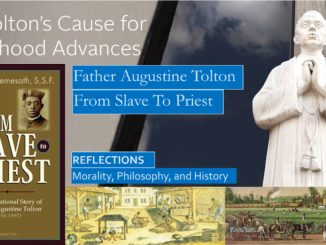
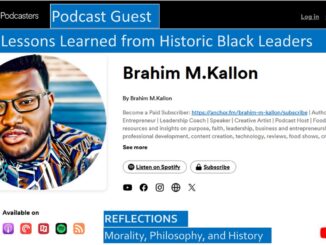
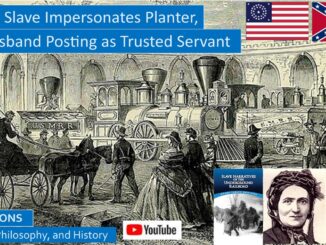
Be the first to comment